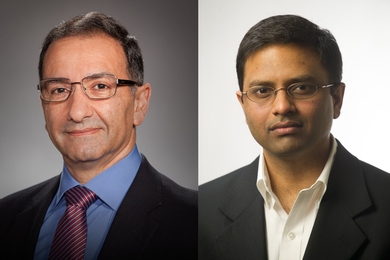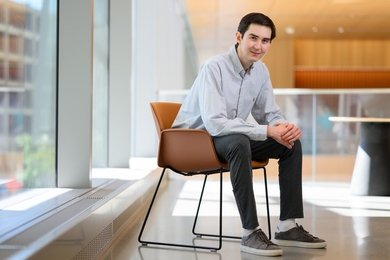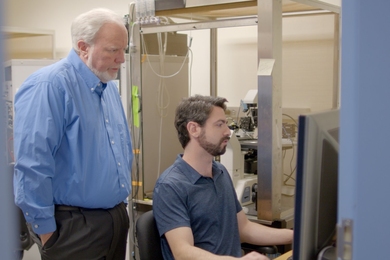When MIT's OpenCourseWare was first announced four years ago, it was welcomed by the world, but no one was quite sure how far it would reach. The answer, according to a new report: just about everywhere.
OpenCourseWare (OCW) now offers the curriculum and faculty course materials from 701 MIT courses on the web--about one-third of the way toward its goal of 2,000 courses by 2008. Among those using OCW are an educational technology instructor in Bangalore, India, a home-schooling parent in rural Kentucky, a university professor in Lagos, Nigeria, and a student at the University of Mississippi. The information was compiled in a recently released survey of thousands of OCW users (see accompanying article).
Among the milestones noted by the survey:
- Fifty-five MIT courses have been translated into Spanish and Portuguese by Universia.net, a Madrid-based web consortium with 724 member universities in Spain, Portugal and Latin America as its members (see http://mit.ocw.universia.net).
- China Open Resources for Education (CORE), a group of Chinese universities, will soon begin translating all the MIT courses offered through OCW into Chinese. CORE will also openly publish nearly 1,000 courses from Chinese universities over the next several years, following the OCW model of open sharing.
- Small "opencourseware-like" projects are springing up on the web, including the Fulbright Economics Teaching Program OpenCourseWare project in Vietnam (see http://www.fetp.edu.vn/fetpocw.htm).
- MIT has been contacted by several major American universities interested in publishing their own educational materials openly online.
MIT is pursuing a dual mission with OCW--both sharing the faculty's educational materials freely and openly, and also creating a model that other universities can follow and improve. Ultimately, the trend toward open knowledge initiated by OCW will help bring people of all backgrounds together and promote improved educational systems across the globe, the program's creators believe.
"MIT is delivering on the promise of OpenCourseWare, and we are pleased that educators and learners from all parts of the globe tell us that OCW is already having an impact on teaching and learning," said President Charles M. Vest. "We hope the idea of openly sharing course materials will propagate throughout many institutions and create a global web of knowledge that will enhance the quality of learning and, therefore the quality of life worldwide."
Since April 2001, MIT has received more than 20,000 e-mail messages from around the world endorsing the vision of OCW and the potential benefits of sharing knowledge freely. A typical message came from Andrew Wilson of the United Kingdom in October 2003: "There can be no greater hope for humankind than the belief that wisdom generated through increased learning will ultimately lead to a better world. With OCW, MIT has taken an ethical stand against the belief that knowledge should only be accessible to those who can pay for it or are in proximity to it."
For more information, contact Jon Paul Potts, MIT OCW communications manager, at jpotts@mit.edu or 452-3621.
A version of this article appeared in MIT Tech Talk on May 5, 2004.





